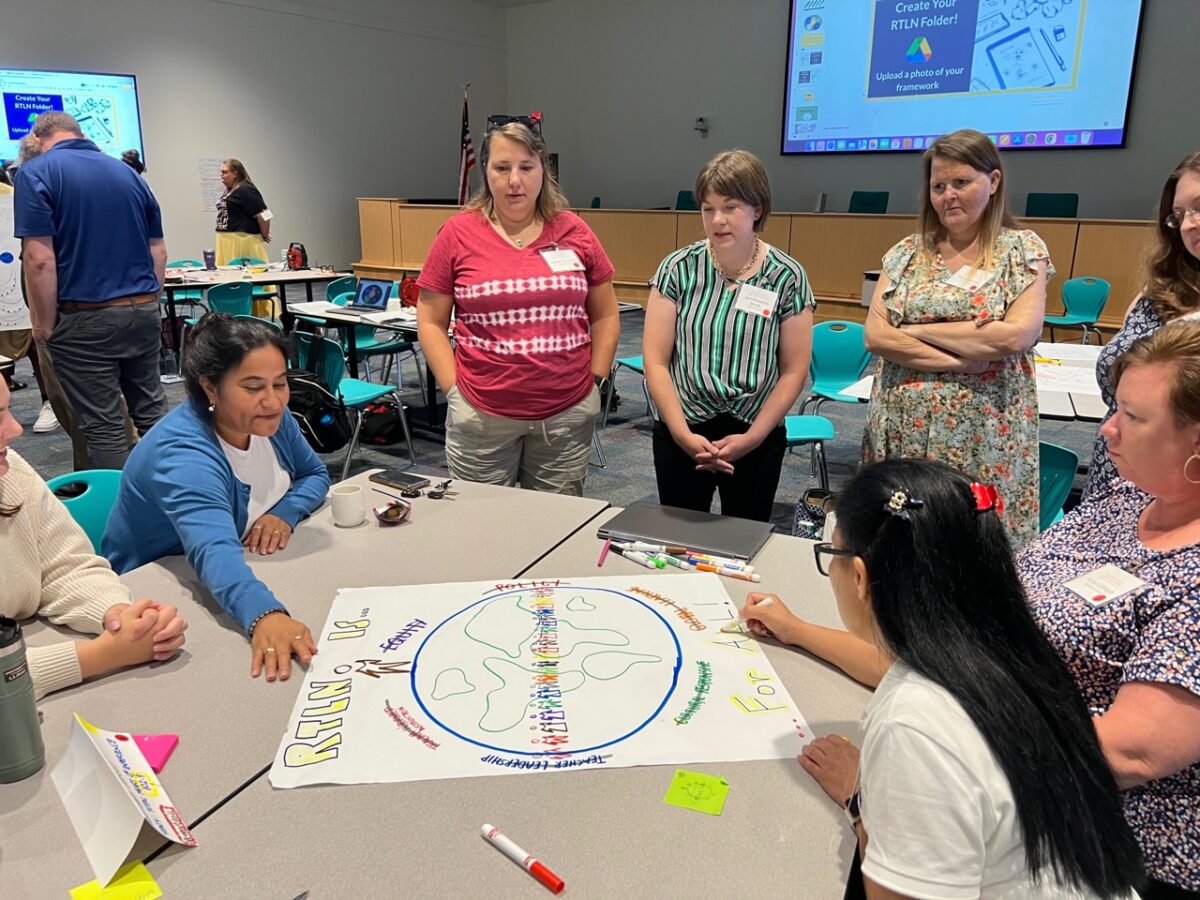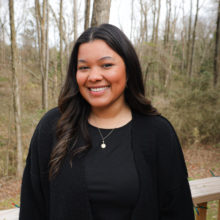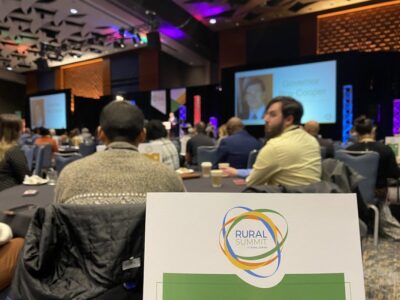

|
|
In 2021, the Public School Forum of North Carolina launched the first cohort of the Rural Teacher Leader Network (RTLN), which is designed for rural educators seeking to improve their practice and foster community with teacher leaders from districts across the state.
Programming for RTLN is facilitated by the Dudley Flood Center for Educational Equity and Opportunity. The Flood Center facilitates the program in partnership with Leading EDge Learning.
Ashley Kazouh, the associate director of the Dudley Flood Center, said RTLN was created to help meet teachers’ needs.
“It was developed out of a need of educators for capacity building around certain aspects of topics that center around culturally responsive teaching, trauma-informed strategies and learning, global learning, teacher leadership, and policy,” Kazouh said. “All of this is wrapped around an equity lens.”
Anonymous Trust is the funder for the eastern RTLN cohorts. GearUp at Appalachian State University receives funding for the Western cohort and supports programming there.
Initially, RTLN started in 2021 in eastern North Carolina, with educators coming from Clinton City, Duplin County, Greene County, Jones County, Onslow County, Sampson County, Lenoir County, and Wayne County schools.
The first western cohort launched this year, with educators from Allegany, Ashe, Burke, Clay, Graham, Madison, Swain, Watauga, Wilkes, and Yancey counties.
The need to expand
RTLN is a year-long commitment. Cohort members meet in person once every three months in addition to various virtual sessions offered. Each training session focuses on the different pillars of the program: global learning, trauma-informed strategies, policy and advocacy, and teacher leadership. The virtual sessions that follow allow the cohort to stay connected, while offering a chance to reflect on the content learned.
It’s important that with each training, educators are walking away with steps for classroom implementation. Kazouh said this includes strategy and content suggestions that educators can immediately implement. This is where the cohort model comes into play.
The community and cohort-based network allow educators to learn from and partner with people from different districts, often creating partnerships they wouldn’t have otherwise.
The response from educators has been overwhelmingly positive, so much so that the Flood Center created an alumni network for educators to stay connected with RTLN even after completing the program.
An equity-centered program
Deanna Townsend-Smith, the senior director of the Dudley Flood Center, said RTLN provides resources in rural communities where resources can often be scarce or limited.
“I often feel that in education in general, having a true, grounded understanding in the importance of understanding what educational equity is and why it is important, regardless of your regional position, is something that is lacking,” Townsend-Smith said. “So being able to do that consistently in a rural space has been important for us.”
Townsend-Smith and Kazouh agree – the concepts learned in RTLN provide educators and districts with the tools to implement best practices.
“When we talk about educators and general leadership — administration, anyone — they all have this want to do what is best for our students,” Kazouh said. “Sometimes there is just a gap between that want and knowing how to do that.”
A guiding principle of RTLN is equity. Kazouh said it’s a value that’s woven into all of the training sessions RTLN offers.
“We want to make sure that when we say equity, we do give them a definition that it means that every child is served. No matter where they come from, no matter who they are, every child receives what they need,” Kazouh said. “We try to build in those equity concepts throughout.”
Investing in communities and making connections across districts
Part of what makes RTLN appealing is the opportunity for collaboration across districts that allows educators to share ideas and hone their craft.
Kazouh said this is an opportunity that allows beginning teachers to work with mid-career teachers and even some veteran teachers – something she says benefits everyone involved.
Another major benefit is teacher retention. While the program is still young, participants in RTLN aren’t leaving the profession. Townsend-Smith credits the relevant professional development that RTLN provides.
“I think that is because they are receiving professional learning that is relevant that they can apply to their everyday practice,” Townsend-Smith said.
Ashley Grant teaches at Greene County Middle School and participated in the 2022-23 RTLN cohort.
Since participating in RTLN, Grant has seen the benefits of the program in her classroom and her relationship with her students. Grant created a “take what you need” station in her classroom that’s stocked with personal care items like soap, deodorant, and more.
It’s a small act that Grant thinks allows students to feel cared for.
“I’ve also seen that maximize my relationship with the kids because they see it as Ms. Grant taking care of them, and caring about them,” Grant said.
Since participating in the program, creating a network with other rural educators and learning together has helped Grant grow as an educator.
“The Rural Teacher Leadership Network, for me, was an amazing opportunity to get to connect with like-minded teachers who have passion for their students, have passion for rural education, want to elevate it, and to be able to hone my skills and improve my craft and my pedagogy, but also to hopefully improve the experience for our rural students in North Carolina,” Grant said.
Steps ahead
For Grant, the experience has been critical.
“This job is not easy. It is a very difficult job. It is a draining job. It’s an important job, and the stakes are very, very high,” Grant said. “To add to your support system and your network of people that you can call on, get advice from, get feedback from — that is invaluable.”
The Flood Center is preparing to open applications for upcoming cohorts by the fall for districts designated through grant funding. If a district is interested in being a part of RTLN, it should contact the Flood Center for more information.




